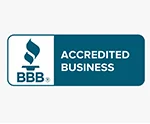What to Do When You Are Arrested in Alberta
August 12, 2022

Understanding how Alberta’s justice system works is important if you or someone you know has been arrested.
During the arrest, the police are required to tell you why you are being arrested and read you your rights. You also have the right to speak to an Alberta criminal defense lawyer soon after you are arrested. If you cannot afford a lawyer, one will be provided to you through Alberta Legal Services. Also, you have the right to remain silent. This means that you do not have to answer any questions or say anything that could be used against you in court.
If the police want to search you or your belongings, they must produce a warrant. If you are not under arrest, the police cannot search you without your permission.
You must be brought before a judge within 24 hours of your arrest. At this hearing, the judge will decide if there is enough evidence to keep you in jail or you can be released on bail.
Bail
Bail is money that you pay to the court to guarantee that you will show up for your next court appearance. If you do not show up, you will lose your bail money and may be arrested.
If the judge decides to release you on bail, they will set conditions that you must follow. For example, the judge may order you to:
● stay in Alberta
● not go to certain places
● not contact certain people
● give up your passport
● not drink alcohol or do drugs
● obey a curfew
Your bail conditions will depend on the seriousness of the crime you are accused of and whether the judge thinks you are a danger to the community.
If you are released on bail, you must promise to come back to court for your next appearance.
Punishments
If you are found guilty of a crime, the punishment will depend on the seriousness of the crime and whether you have been convicted of a crime before.
For less serious offenses, the punishment may be a fine or probation. For more serious offenses, the punishment may be jail time.
You will go to a provincial or federal prison if you are sentenced to jail.
Appealing a Conviction
If you are convicted of an offense and want to appeal the decision, you can do so in some cases. The grounds for an appeal depend on the type of offence and whether it was tried in Provincial Court or Court of Queen’s Bench.
You must file an appeal within 30 days of being convicted.
Self-Representation in Criminal Cases
If you are arrested in Alberta, you will have the right to choose whether or not to represent yourself in court. This means that you can either hire a lawyer or choose to represent yourself. If you choose to represent yourself, you will be responsible for conducting your legal research and preparing your case. This can be a daunting task, and you may want to consider hiring a lawyer if you feel that you are not up to the task. However, keep in mind that representing yourself is not advisable if you are facing serious charges. If you are convicted, you could be facing serious penalties, including jail time. It is always best to consult with a lawyer before making any decisions about your case.
The Dangers of Self Representation
There are several dangers associated with self-representation in criminal cases:
- You may not be familiar with the law and the court process. This can put you at a disadvantage when trying to defend yourself.
- The prosecutor will likely be experienced and know how to overplay any weaknesses in your case.
- If you are convicted, you could be facing serious penalties
- If you choose to represent yourself, you will be responsible for all aspects of your case, including collecting evidence and witnesses, preparing legal arguments, and presenting your case in court.
FAQS
What is the difference between a criminal offence and an indictable offence?
Alberta’s criminal justice system is divided into summary conviction offences and indictable offences. Summary offences are less serious crimes, such as minor theft, trespassing, and public intoxication. These types of offences are typically punishable by a fine or a short period of imprisonment.
On the other hand, Indictable offenses are more serious crimes that are prosecuted in Alberta’s Court of Queen’s Bench. These offences include things like murder, assault, and sexual assault. If you are convicted of an indictable offence, you could face a lengthy prison sentence. Alberta has a dual court system to ensure that all accused persons receive a fair and just trial.
What is the difference between being charged and being convicted?
Alberta’s criminal justice system is based on the principle that a person is innocent until proven guilty. This means that if you are accused of a crime, you have the right to have your case heard in court. If the court finds you guilty, you will be convicted.
A conviction can result in several punishments, including a fine, probation, or even imprisonment. It is important to note that being charged with a crime does not necessarily mean that you will be convicted in Alberta. In fact, many charges are ultimately withdrawn or dismissed by the Crown prosecutor.
I am an immigrant; how does the criminal justice system work for me?
If you are an immigrant, you should be aware that a criminal conviction can have some consequences, including deportation. Other consequences include a loss of status, ineligibility for citizenship, and a loss of employment opportunities. As such, it is important to have good representation if you are accused of a crime.
——-
Are you in need of a criminal defence lawyer? Laws & Beyond can help.
At Laws & Beyond, we understand that being accused of a crime can be a stressful and daunting experience. Our team of experienced criminal defence lawyers will work tirelessly to defend your rights and ensure that you receive a fair trial. Contact ustoday to learn more about how we can help you.













